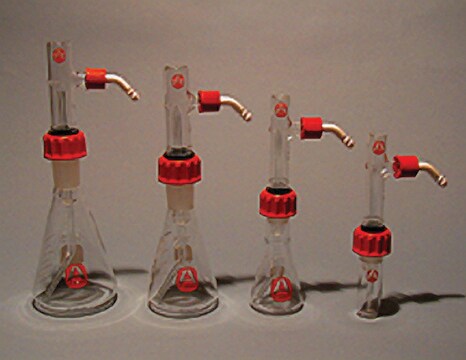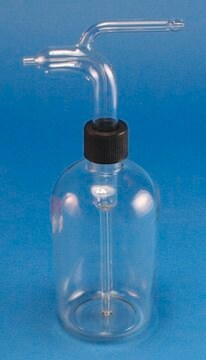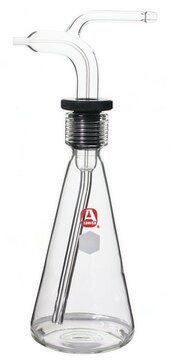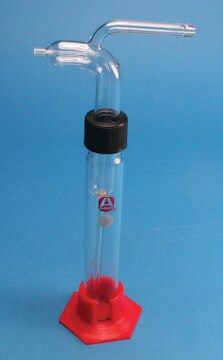58005
Reagent sprayer for TLC plates
volume 250 mL, Bottle-Type
Sign Into View Organizational & Contract Pricing
All Photos(1)
About This Item
UNSPSC Code:
41115711
Recommended Products
technique(s)
thin layer chromatography (TLC): suitable
volume
250 mL
General description
The extraction phase or adsorbent phase can be coated on to the solid phase as a thin film. Coating preparation is of three types; dipping, brush painting and spraying. Spraying method was widely used due to its stability and reusability.
Application
Reagent sprayer may be used in thin-layer chromatography.
Compressed-air sprayers for spraying TLC plates. Sets include a glass-sprayer head and a choice of either bottle or tube with hexfoot stand.
Choose from one of the most recent versions:
Certificates of Analysis (COA)
Lot/Batch Number
Sorry, we don't have COAs for this product available online at this time.
If you need assistance, please contact Customer Support.
Already Own This Product?
Find documentation for the products that you have recently purchased in the Document Library.
Customers Also Viewed
Jae Hong Park et al.
The Laryngoscope, 130(2), 358-366 (2019-03-13)
In this study, we assessed the effectiveness of a tonsil-derived mesenchymal stem cell (TMSC)-transplanted polycaprolactone/beta-tricalcium phosphate prosthesis (specifically designed for easier fixing and grafting with a single scaffold) on rabbit mandible osteogenesis. The mandibles of 18 rabbits were exposed, and
Robert Farkaš et al.
Development, growth & differentiation, 58(6), 562-574 (2016-07-12)
The Drosophila salivary glands (SGs) were well known for the puffing patterns of their polytene chromosomes and so became a tissue of choice to study sequential gene activation by the steroid hormone ecdysone. One well-documented function of these glands is
Fatemeh S Mirnaghi et al.
Analytical chemistry, 83(15), 6018-6025 (2011-06-30)
Biocompatible C18-polyacrylonitrile (PAN) coating was used as the extraction phase for an automated 96-blade solid phase microextraction (SPME) system with thin-film geometry. Three different methods of coating preparation (dipping, brush painting, and spraying) were evaluated; the spraying method was optimum
Parameswaran Vijayakumar et al.
Marine biotechnology (New York, N.Y.), 22(3), 333-347 (2020-02-23)
Teleosts have the ability to regenerate their caudal fin upon amputation. A highly proliferative mass of undifferentiated cells called blastema forms beneath wound epidermis and differentiates to regenerate all missing parts of the fin. To date, the origin and fate
Sandra Loera-Serna et al.
Chemistry (Weinheim an der Bergstrasse, Germany), 25(17), 4398-4411 (2019-01-05)
The metal-organic framework (MOF) HKUST-1 was employed as an interaction matrix for fundamental loading studies of anthraquinone dyes. Chosen dyes were alizarin (A), alizarin S (AS), disperse blue 1 (B1), disperse blue 3 (B3), disperse blue 56 (B56) and purpurin
Our team of scientists has experience in all areas of research including Life Science, Material Science, Chemical Synthesis, Chromatography, Analytical and many others.
Contact Technical Service





